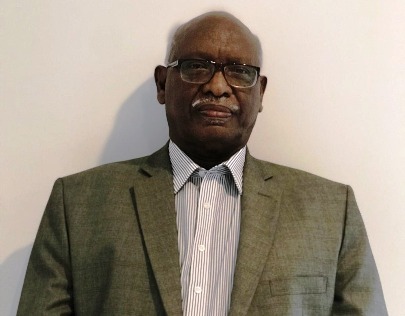What’s Behind Al-Burhan’s Visit to Saudi Arabia

By Zain Al-Abidin Saleh Abdul Rahman
The Chairman of the Sovereignty Council and Commander-in-Chief of the Sudanese Armed Forces, General Abdel Fattah Al-Burhan, began a visit to the Kingdom of Saudi Arabia, where he met with Crown Prince Mohammed bin Salman. The visit addressed developments in Sudan and the liberation of Khartoum from the grip of the Al-Dagalo militia, as a large number of its forces withdrew from Khartoum via the Jebel Aulia Bridge. At the same time, a Saudi delegation headed by the Saudi ambassador to Sudan, Ali bin Jaafar, arrived in Port Sudan. The delegation included representatives from the Saudi Development Fund and the King Salman Humanitarian Aid and Relief Center, who met with several government leaders in Port Sudan.
Before Al-Burhan’s visit to Saudi Arabia, the Saudi Deputy Minister of Foreign Affairs, Waleed Abdul Kareem Al-Khuraiji, had made an official visit to Chad, where he met with Chadian President Mahamat Déby. Notably, the Saudi delegation’s plane did not land at N’Djamena Airport but instead at Amjarass Airport, where they were received by the Minister of State for Foreign Affairs, Abdullah Saber Fadl. The visit by the Saudi Deputy Minister of Foreign Affairs, which preceded Al-Burhan’s visit to Saudi Arabia, is likely connected to the latter. This is especially true since Al-Khuraiji’s meeting with President Déby addressed the Sudanese conflict. Déby stated during the meeting that Chad remains neutral, does not support any side in the conflict, and seeks to maintain strong and stable relations with Sudan—despite the fact that 80% of the military equipment sent by the UAE to the militia passed through Amjarass Airport.
The Saudi delegation’s visit to Sudan, followed by Al-Burhan’s unannounced trip to Saudi Arabia, has fueled speculation that the visit involved secret talks between Al-Burhan and Mohammed bin Zayed in Saudi Arabia. Others suggest it may be linked to the presence of the Chadian president, who had arrived in Saudi Arabia on Tuesday, March 25, 2025. Interestingly, Saudi and other media outlets did not cover Déby’s visit beyond his performance of the Umrah pilgrimage. This made it easy to connect Al-Burhan’s visit to Saudi Arabia with Déby’s presence there—alongside the visit of Deputy Foreign Minister Al-Khuraiji to Chad, Déby’s subsequent travel to Saudi Arabia, and the Saudi delegation’s visit to Khartoum before Al-Burhan’s trip.
Additionally, Sudanese Foreign Minister Ali Yusuf Al-Sharif’s visit to Egypt on Thursday, March 27, 2025, where he met with Egyptian Foreign Minister Badr Abdel Atty, is also closely tied to Al-Burhan’s visit to Saudi Arabia. Reports indicate that Minister Ali Yusuf briefed his Egyptian counterpart on recent developments, which likely included the reasons behind Al-Burhan’s visit to Saudi Arabia and its underlying motives.
Al-Burhan’s meeting with the Saudi Crown Prince confirms that the visit, while linked to reconstruction efforts, also holds deeper political significance concerning Sudan and its relationship with the countries that had supported the militia. The presence of both Al-Burhan and the Chadian president in Saudi Arabia—amid limited media coverage—suggests that Déby has come to the conclusion that the militia has lost the war against the Sudanese army and will have no future role in the political process. Even if Mohammed bin Zayed were to visit Saudi Arabia, it would signify the failure of his scheme and the need to seek a new post-war reality for Sudan. This would require hearing from other stakeholders about the future without accepting any conditions involving the militia or the political process, as such matters are internal Sudanese affairs.
Any negotiations concerning Sudan’s post-war future are necessary. However, any concessions by Sudanese decision-makers that grant the militia or its supporters future political or military roles would damage the trust that has been built between the Sudanese people and the military leadership. Such concessions would undermine the confidence established through the army’s efforts during the conflict.
Sudan’s leadership must prioritize the interests of the Sudanese people above all else. The war has revealed that most neighboring countries participated in the conspiracy, supporting the militia with mercenaries and supplies. This requires the military leadership to strengthen its ties with the Sudanese people, who have shown remarkable resilience in confronting and thwarting the conspiracy. These neighboring countries will not hesitate to participate in future conspiracies as long as they can buy influence in the international marketplace of political opportunism. Now, we await the outcomes of Al-Burhan’s visit to Saudi Arabia. May God grant clarity and wisdom.



